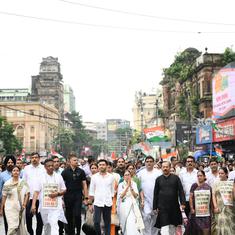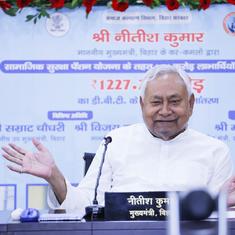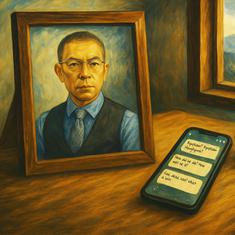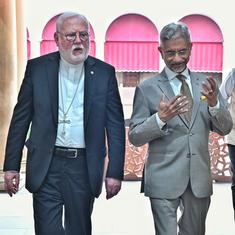The Big Story: Mum’s the word
India celebrates its democracy every time her people vote. For a country of diversity and size, that India has managed to conduct regular elections and elect governments on that basis is remarkable. Most political theorists, however, are of the opinion that free and fair elections are only one of the steps that make a democracy – there are other crucial checks and balances required for governments to be held accountable to the people they rule over. One of them – maybe the most crucial after elections themselves – is free speech.
On this, sadly, India is a laggard. Works of literature are regularly banned for “hurting sentiment”. India has laws that make blaspheming against religion a crime. As a final cherry, India is one of the few countries today to have a Soviet-style film censor board.
The censor board has the power of life and death over films. Without its nod, a film cannot be released. While its very existence is an anachronism in a democracy, the censor board was at least lowering its guard and becoming more liberal in its approach – till the Modi government appointed Pahlaj Nihalani to head the body in January 2015.
Nihalani has shaken up the film industry with his puritanism. He has led a crusade against the use of cuss words in cinema – which, as per his definition, also includes the word “lesbian”. The length of a kiss in a James Bond film was minutely discussed and his smooches were abbreviated. Documentaries critical of Narendra Modi were banned. And now, “Udta Punjab” which deals with the drug problem in the state has been butchered with 89 cuts and an order to expunge the word “Punjab” altogether from the film.
In this case, the censor board has acted politically. The Punjab assembly elections are due in 2017 and the focus on the state’s drug problem would embarrass the ruling Shiromani Akali Dal, a party in coalition with the Bharatiya Janata Party in the Union government. That the censor board is being used blatantly as a party mouthpiece is shocking. If films, literature and song can be this easily gagged to further political interests then Indian democracy is facing a crisis.
The Big Scroll
Nandini Ramnath points out that “Udta Punjab” will set a dangerous precedent. After this, no one would dare to aim for realism in Indian films. Earlier, director Abhishek Chaubey spoke to Scroll about Udta Punjab, addiction, and casting Alia Bhatt as a Bihari migrant. And even if you might never get to watch the movie, here’s Udta Punjab's exhilarating soundtrack.
Political Picks
1. Punjab’s war on drugs is more a war on drug addicts: The Indian Express looks at how Punjab is missing the wood for the trees in combatting the menace of addiction.
2. The United States will push for India’s inclusion into the elite Nuclear Supplier’s Group.
3. A split in the Jat leadership tempers the Haryana quota protests even as the BJP flounders for a political response.
Giggle
#Dadri #Beef pic.twitter.com/y9QkQHtyq9
— R Prasad (@rprasad66) June 8, 2016
Punditry
1. In the Hindustan Times, Dipankar Gupta writes that by sanitising Muhammad Ali, we’re undermining the legend.
2. In the Indian Express, SY Quraishi argues that the controversy over Rajya Sabha polls in Karnataka is an opportunity to bring in crucial electoral reforms.
3. In the Telegraph, SL Rao argues that over the next three years, the Modi government should only focus on the economy.
Don’t Miss
Has Amit Shah managed to bring about a Congress-BSP alliance in Uttar Pradesh, asks Dhirendra K Jha.
A BSP-Congress alliance for Assembly elections in UP is the last thing the BJP or the ruling Samajwadi Party would like to see. For, such an alliance is potent enough to carve for itself a formidable vote base, consisting of a majority of Dalits and Muslims as well as a section of upper castes, leaving the BJP and the SP to play an Other Backward Classes-centric politics in the state. While SP is practically an OBC party, the BJP has been consciously promoting backward caste leaders in the organisation with a clear intention to win over this section of the state.










